- News
- Reviews
- Bikes
- Accessories
- Accessories - misc
- Computer mounts
- Bags
- Bar ends
- Bike bags & cases
- Bottle cages
- Bottles
- Cameras
- Car racks
- Child seats
- Computers
- Glasses
- GPS units
- Helmets
- Lights - front
- Lights - rear
- Lights - sets
- Locks
- Mirrors
- Mudguards
- Racks
- Pumps & CO2 inflators
- Puncture kits
- Reflectives
- Smart watches
- Stands and racks
- Trailers
- Clothing
- Components
- Bar tape & grips
- Bottom brackets
- Brake & gear cables
- Brake & STI levers
- Brake pads & spares
- Brakes
- Cassettes & freewheels
- Chains
- Chainsets & chainrings
- Derailleurs - front
- Derailleurs - rear
- Forks
- Gear levers & shifters
- Groupsets
- Handlebars & extensions
- Headsets
- Hubs
- Inner tubes
- Pedals
- Quick releases & skewers
- Saddles
- Seatposts
- Stems
- Wheels
- Tyres
- Health, fitness and nutrition
- Tools and workshop
- Miscellaneous
- Cross country mountain bikes
- Tubeless valves
- Buyers Guides
- Features
- Forum
- Recommends
- Podcast
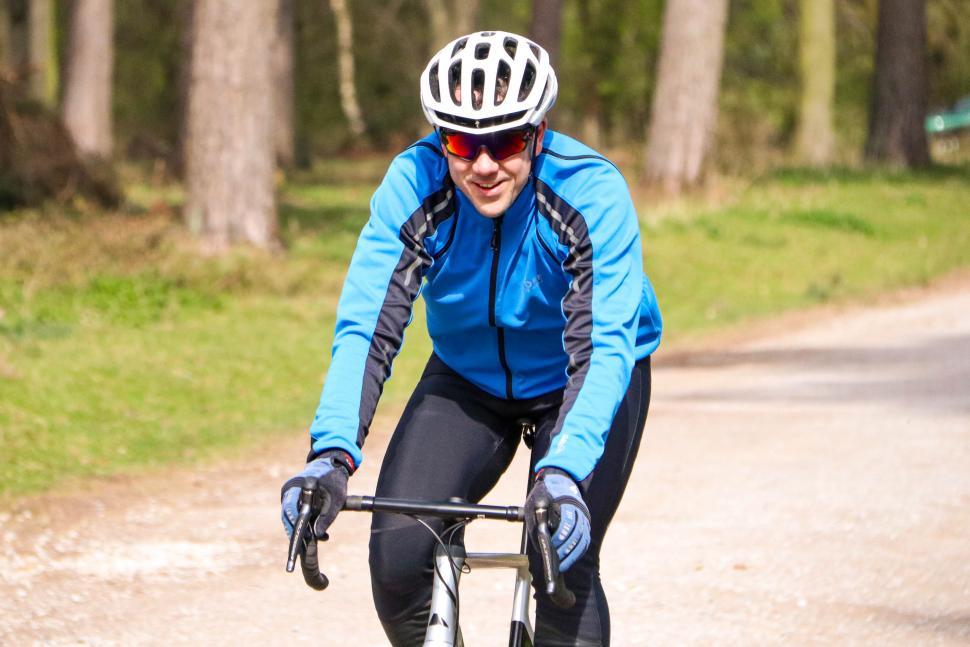 bike-live-cannock-2019-44
bike-live-cannock-2019-44How to get started in cycling, with tips from road.cc readers
If you're just starting out on your cycling journey and are yet to venture out with friends, relatives or a cycling club, it can be harder to pick up those little bits of cycling know-how here and there. To help out, we've complied a list of the best snippets of advice from road.cc readers for beginner cyclists to make racking up those first miles and building on them even more fun and rewarding.
If you don't understand some of the technical terms in this guide or others, head over to our A to Z guide to cycling jargon here, which includes a glossary of common cycling terms and their meanings.
Head out for a ride and just see how it goes…
Rolling the wheel out the door can be hard sometimes, whether that’s because the weather conditions don’t look so inviting or you’ve had a long day at work so you are worn out. It can be difficult committing to a certain amount of kilometres or time on the bike when you aren’t feeling up to it beforehand. So don’t always put this pressure on yourself. Consistency is really beneficial for making progress with your fitness and skills, so going out on any length of bike ride is better than trapping yourself inside doing nothing—for both your mind and body.
> Advice: 9 top survival tips for cycling in the rain
hawkinspeter says: “If you're not sure about the weather just get dressed for it, start cycling and see how you go - you can always decide to stop and go back home.”
Van Coversions L20 similarly suggests: “If you feel tired just go out for 10 minutes and if you don’t enjoy it come home – I’ve never turned back after 10 minutes.”
Quite often as soon as you are outside, you’ll suddenly feel more awake, energised and delighted to be pedaling around on your bike.
That said, kil0ran recommends planning to do shorter circular routes, which gives you the choice to head home when you need to or continue if you are feeling motivated to do so. Leaving your options open is sensible when starting out.
‘No drop rides’ means riders WILL wait for you
It can be incredibly nerve-racking taking the plunge to go on a ride with others when you don’t know if your fitness is at the level that is needed to keep up. But don’t worry, there are group rides out there which will either ride at the pace of the slower riders (without any complaints) or will wait at junctions, particularly after climbs where it is more likely for splits to occur.
Ann Gentle says: “When my friends said “no drop ride” they really meant it. No one minded waiting for newbies”—which can be extremely reassuring to know.
This one obviously does vary from group to group, so if you are looking for a ‘no drop ride’ and do stumble across riders that aren’t willing to wait for you don’t get disheartened. There are genuine ‘no drop rides’ out there so try out a different ride with a different group of friends or club.
Don’t spend all your cycling budget on a bike, put some aside for kit for different weather conditions
If you go out on a ride and you aren’t wearing appropriate clothing it can make the riding experience incredibly unpleasant—whether you are overheating or freezing. Different cycling clothing is needed to be able to regulate your temperature across the seasons. Having the kit cover a range of conditions can be expensive but some layers can be used together to reduce the number of individual items needed.
Judge dreadful says: “There’s no such thing as the wrong weather, just the wrong kit.” By putting aside some of your budget for enough suitable cycling clothing you will be able to extend your riding time through the harsher elements of the darker months.
Short sleeve jerseys and bib shorts are for the summer. Leg warmers, arm warmers and gilets can be added for the transitional seasons of Autumn and Spring. For winter you do need a warmer windproof jacket, full length bib tights and a waterproof jacket for the particularly rainy days.
> Buyer's guide: Cycling clothing for your winter wardrobe
Don’t forget about your extremities, David9694 points out. Your toes and fingers can be the first parts of your body to get cold and when it can be a lot harder to spin the pedals and pull on the brakes if you don’t properly look after your hands and feet. Full finger winter gloves and overshoes (an extra layer over your cycling shoes) therefore an important part of your cycling wardrobe.
Wearing gloves has another important benefit, kil0ran adds: “If you fall off your hands will be thankful.”
If you invest in any individual piece of quality cycling clothing, make it padded bib shorts
The Lycra of padded bib shorts is designed to hug your skin and with straps which loop over your shoulders, these hold bib shorts and the chamois pad in place to prevent uncomfortable chafing when riding. Unlike waist shorts, these also won’t dig in around your stomach which isn’t pleasant when you're giving it some.
> Buyer's guide: Best padded bib shorts
The padded insert included is shaped to conform to your body and provide padded comfort at the pressure points when perched on a saddle.
Bib shorts or bib tights are the “best investment” according to Pablo and likewise Carl Harris recommends buying a decent quality pair of bib shorts, as well as a tub of chamois cream alongside this.
> Buyer's guide: Best warm winter cycling tights
If you are still experiencing problems with irritation and saddle sores, even when riding in a decent pair of cycling shorts, chamois cream can help by eliminating the friction between your skin and shorts. Finding your saddle soul mate is also a route to go down for a comfier riding experience.
> Video: How to choose the correct saddle for you and your riding
Don't wear anything under your bib shorts
Another reason for discomfort when sitting on the saddle, might be because you are wearing underwear underneath your shorts. You shouldn’t wear anything under your shorts as it will lead to bunching and chafing.
As zeeridesbikes admits, it is quite common not to realise that you shouldn’t be wearing something underneath. When you do find out, like you might have just now, it can seem shocking and yes it does take getting used to… but in no time you’ll never be looking back.
Learn some basic bike maintenance
Teaching yourself as much as you can so you can keep your bike in working order is an incredibly useful skill to have, as lots and lots of you have written in to say.
As ktache puts it: “You will save some money and keep riding longer”. don simon fbpe agrees and believes that the price shops charge for fixing a puncture is a “joke” so it’s worth being able to do this as a minimum.
Learn how to fix a puncture in our guide here.
It is best to be well prepared before you are in the situation where you are under pressure to sort an issue.
> Advice: Beginner’s guide to bike tools – get all the vital gear for basic bike maintenance
kil0ran stresses: “Learning to fix a puncture in the comfort of your shed/kitchen/living room is the best way to learn, rather than on a wet Tuesday evening in Stoke.”
For easy but thorough maintenance advice, check out our series of bike repair and maintenance videos here, with the first on how to get your bike properly clean and lubed.
Don’t stuff your jersey pockets full with tools
Jersey pockets are useful for carrying essentials such as valuables, nutrition and tools on rides, but they are not the only option. Saddlebags are bags which attach under your saddle, with an opening at the rear, and are a worthwhile accessory for your bike. They are handy for holding heavy tools that you only need access to when you come to a halt.
> Advice: The best ways to carry stuff on your bike
Woldsman recommends: “Don’t put tools or anything else that is hard or pointy in your rear jersey pockets”. These can dig in and make for uncomfortable riding. Instead, stashing food in your pockets is a better use of the space as, once you develop the skills, you will be able to fish out the food while riding along.
Invest in a track pump for tyre pressures
Other than the set of tools which include a mini pump that you take with you on bike rides, it is worthwhile having a track pump back at home, which as Grahamd says, you can use to “easily inflate your tyres and know you have the correct pressure”.
> Buyer's guide: Best track pumps
Mini pumps are useful for stashing in your jersey back pocket, saddle bag or attaching to your frame, to deal with any unfortunate punctures on the ride itself. But more often than not they won’t have a gauge to determine pressure, or if they do the pumping efficiency isn't going to be anything like that of a sturdy floor pump.
Deciding on the best pressure for your tyres, which balances speed, comfort and grip, has its nuances so check out our full guide to choosing tyre pressures here.
Practice using clipless pedals away from tarmac first and with only one foot clipped in
Contrary to what the name may seem to suggest, clipless pedals are pedals that allow you to clip cycling specific shoes into pedals.
> Buyer's guide: Best cycling shoes for beginners
Once you get used to riding with this system, there are lots of benefits over flat pedal options, including the fact that your feet won't slip off and you can pull on the upstroke when you really want to lay down some power. Also, without your foot slipping about, riding confidence can be gained and skills can be improved including cornering, descending and climbing out the saddle.
But clipless pedals can be tricky to get started with as it is understandably daunting to have your foot stuck to the pedal when you may need to stop suddenly. Being comfortable with clipping in and out is important to remain safe when riding on the roads.
> Video: How to ride road clipless pedals
Stationary turbo trainers or exercise bikes can be a useful place to start practising the motion of clipping in and out as here there isn’t the extra complication of balance and staying upright to think about.
But it is no issue if you don’t have one of these to use to begin with. Instead, Richard Cargill suggests practising on a field as if you have any issues the grassy surface is a lot softer than the harsh tarmac of the roads.
Once you are comfortable with the action, it can still prove challenging to unclip and clip in quickly on demand. With road rides there are a fair few occasions where you will have to do this.
> Buyer’s guide: Best clipless pedals
Richard Tillotson says: “Learn to ride with one foot clipped into the pedals so you can get comfortable with take offs at traffic lights & intersections.”
Instead of fumbling around at a junction with streams of cars waiting to roll on past, if you can continue by riding with only one foot clipped in you can retry a little further up the road, when there’s less commotion and you are in a less stressful situation.
Spend time finding routes away from the traffic
Receiving abuse from drivers or getting cut up by a cars passing too close doesn’t happen on every ride but it is unfortunately more common than one would like (which is for it to not happen at all!). Safety is a concern so it’s important to be aware that you could have experiences as such that we share on our Near Misses of the Day. We don’t want to scare you away from cycling (we love it and it hasn't put us off) but having an idea of the reality is sensible so you can be prepared.
That said, it is possible to find somewhat safer routes, so to say, with less traffic and that tend to have fewer drivers in a rush.
> Advice: How to plan and follow a bike route
Sriracha says: “Find some nice, quiet routes so that you can actually enjoy your first experiences and be scared s**tless on day one.” Sriracha recommends using the apps CycleStreets or Komoot to find these.
> Buyer's guide: Best smartphone cycling apps for iPhone and Andriod
An aspect of finding pleasant and safe routes will still have to be down to trial and error, but, ultra-distance cyclist Josh Ibbett, does find Google Street View can be a really useful for figuring out what a good road looks like in map format compared to reality. Another option is to copy other riders’ routes, especially routes a local club ride goes on, as if they are likely to be tried, tested and decent.
If the traffic is bothering you, it is worth considering escaping with some gravel riding from time to time, pedalling along bridleways and dirt tracks. Find out more about off-road riding here. Or if you are okay with being cooped up inside on a turbo trainer, riding the virtual roads of Zwift can also keep fit.
> Video: A Zwift setup for every budget
Consider the wind direction and where the hills are when planning a route
Choosing a route to ride which is suitable for your fitness level is not just about the distance you can manage or the average speed you attack it. There are ways to optimize your route, so it is more enjoyable and appropriate for your riding ability when starting out.
SimonAY recommends learning your local geography and topography, as well as looking at the wind direction and its strength, before heading out.
“Much nicer to ride out into a headwind where you are sheltered by hills/trees and then ride home with a tailwind on exposed, flatter roads,” SimonAY says.
As a beginner it can be harder to judge where your limits are and so the chances are higher that you will be struggling towards the end of the ride.
To help with this, SimonAY says: “Try to make the last couple of miles of a long ride downhill, gives you a nice boost if you're flagging when nearly home.”
Nod or raise your hand to other cyclists
By acknowledging a fellow cyclist as you overtake or see them from the other side of the road, David9694 says they will do likewise and you will feel a part of the welcoming and friendly cycling community. By saying hi like this to all riders you will also end up introducing the concept to others as well and spread the tradition.
Don’t get put off if a rider doesn’t react and nod back. Even if they are wearing fancy Lycra there’s still the chance they are new to the sport. Don’t pass any judgement and continue greeting other cyclists as you were.
Join a local cycling club
Looking for more knowledge and advice so you can improve as a bike rider? Aside from meeting like-minded people who you are bound to become great friends with, club rides can help you navigate through all the stages of being a bike rider: from learning basic skills such as pointing out potholes on social rides, to structured training rides for fitness leaps, all the way to the more complicated tactics and bunch positioning for racing.
Alwyn Frank recommends joining a local club as here you will find “tons of sensible advice from real cyclists and people to ride with”. Most clubs will allow you go along to a ride or two before joining, so you can get to know the group a little better before committing.
If you are half convinced, you can read more reasons to join a cycling club here and when you are fully convinced there’s also information on the same page on how to find the right one for you.
Use British Cycling’s club finder to locate groups that are nearby.
Fit mudguards to your bike
If you like the idea of the tip just above, joining a club, there is one way to ensure you keep your new-found friends when tagging along on winter or rainy club rides.
As OnYerBike notes: “Mudguards aren't so much for your own enjoyment as to keep the bike clean, and for the benefit of others riding around you.”
> Buyer's guide: Best mudguards and the different types
When riding in a group, it can be hard sitting close to the wheel in front if lots of dirty water is being sprayed up at you. Mudguards can provide protection to the rider behind, while also keeping you dryer.
> Read more: Reasons to get mudguards
Smile and keep on riding
Aside from these pointers that should see you riding off in the right direction, another important message that has been reiterated by a lot of you, is to just “get out there and enjoy yourself”, as Sophie Weiss phrased it.
“It is easy to get caught up in average speeds, Strava segment times and group riding speeds, don’t lose sight of just enjoying the ride,” Nicholas Kurth stresses.
Kendalred adds that you should be happy cycling “safe in the knowledge you are doing a great thing for yourself, your local environment and the planet as a whole”.
There can seem to be an overwhelming amount of information to take in but these are NOT rules of being a cyclist, these are just bits of advice that can help you through the hurdles of getting to know a new sport.
As you rack up more miles things will only get easier, as both your knowledge, skills and fitness all improve together. Have fun and keep turning those pedals...
This isn’t a comprehensive guide for beginner cyclists, but it is a handy compilation of some of the best bits of advice of things you, our readers, wish you knew when starting out and the best tips you were given. If you have any advice you’d like to share, let us know about them in the comments below…
Anna has been hooked on bikes ever since her youthful beginnings at Hillingdon Cycle Circuit. As an avid road and track racer, she reached the heady heights of a ProCyclingStats profile before leaving for university. Having now completed an MA in Multimedia Journalism, she’s hoping to add some (more successful) results. Although her greatest wish is for the broader acceptance of wearing funky cycling socks over the top of leg warmers.
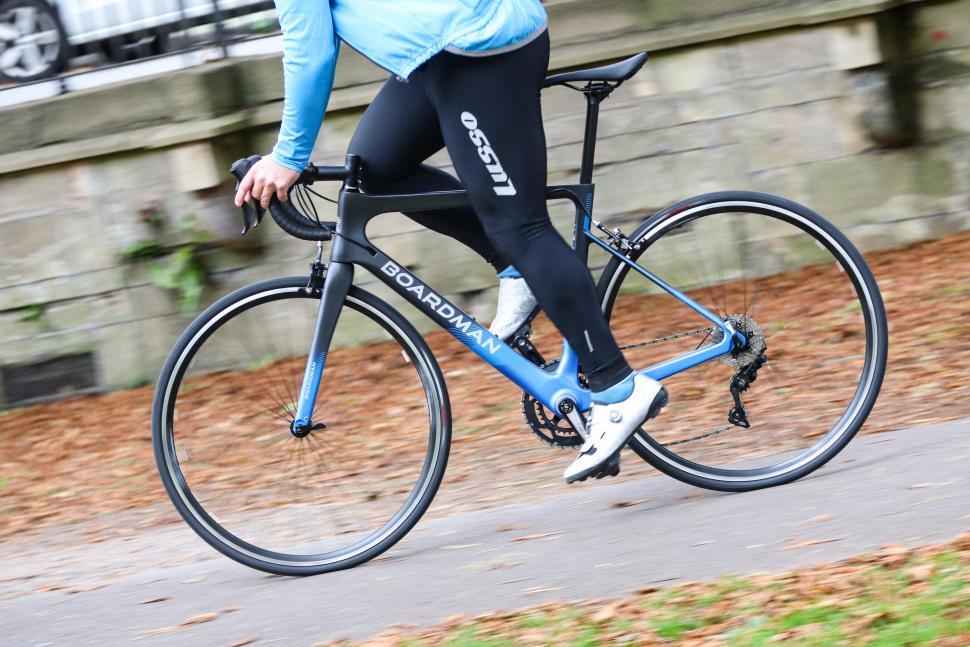
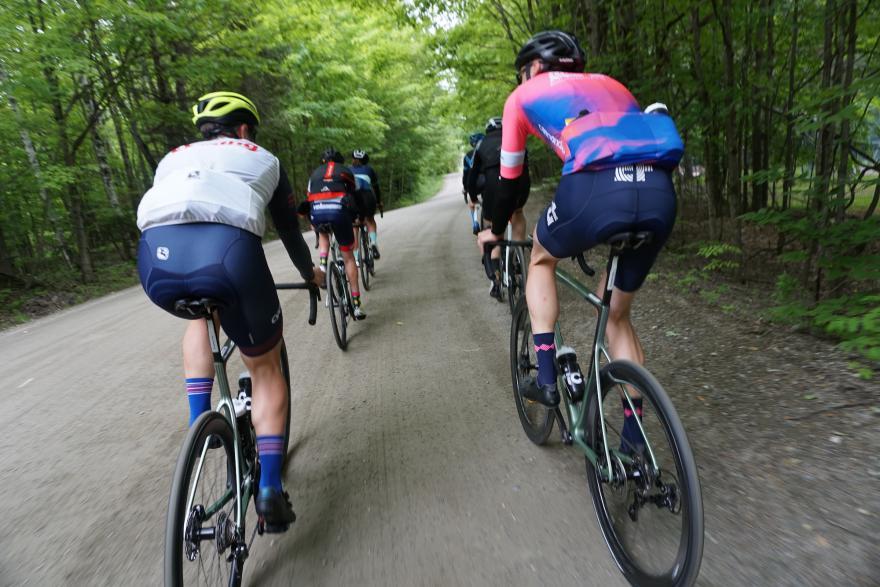

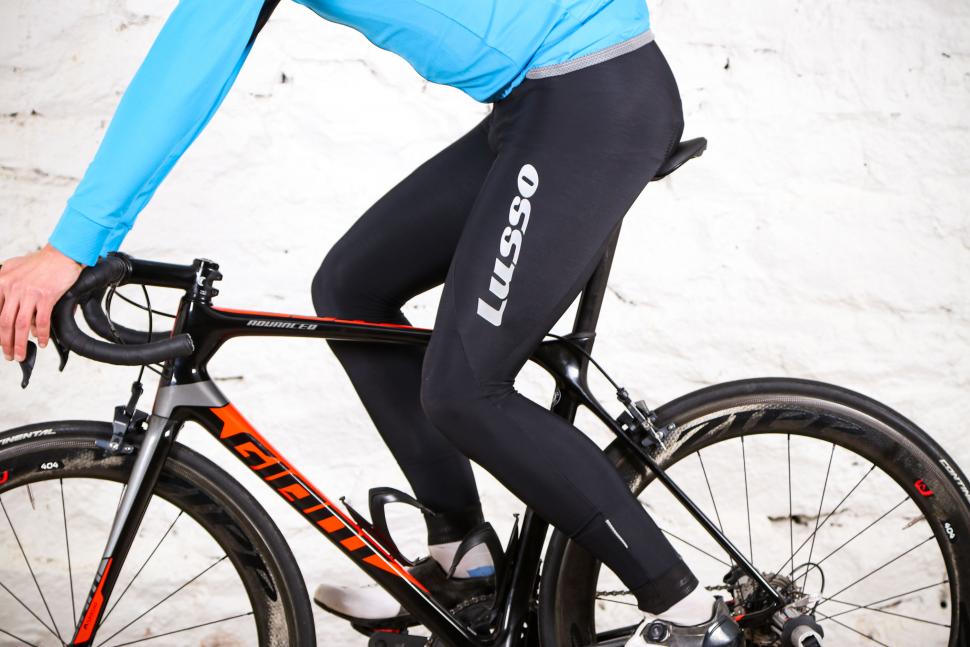
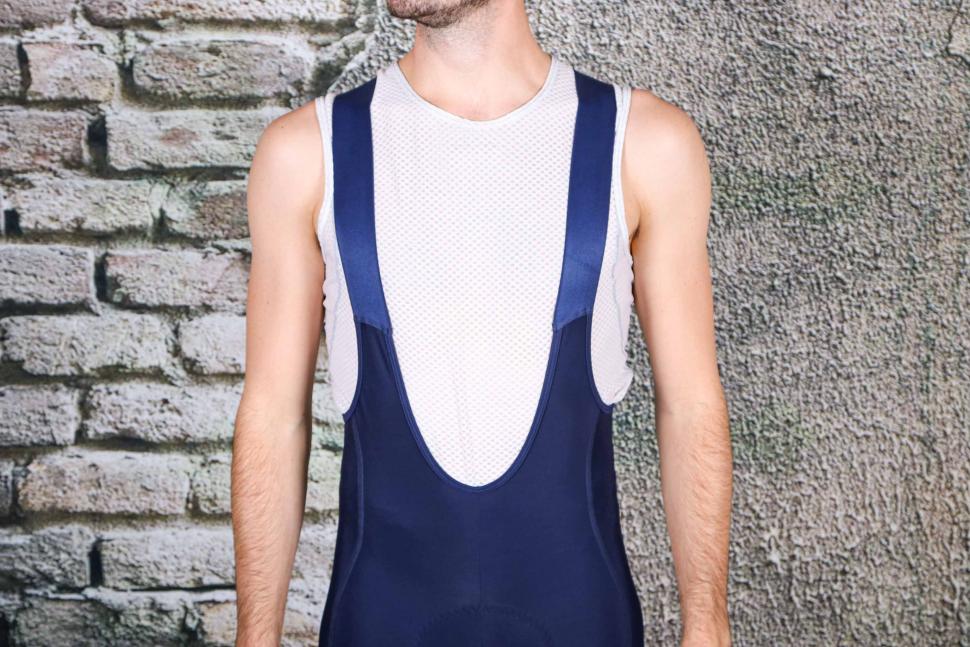
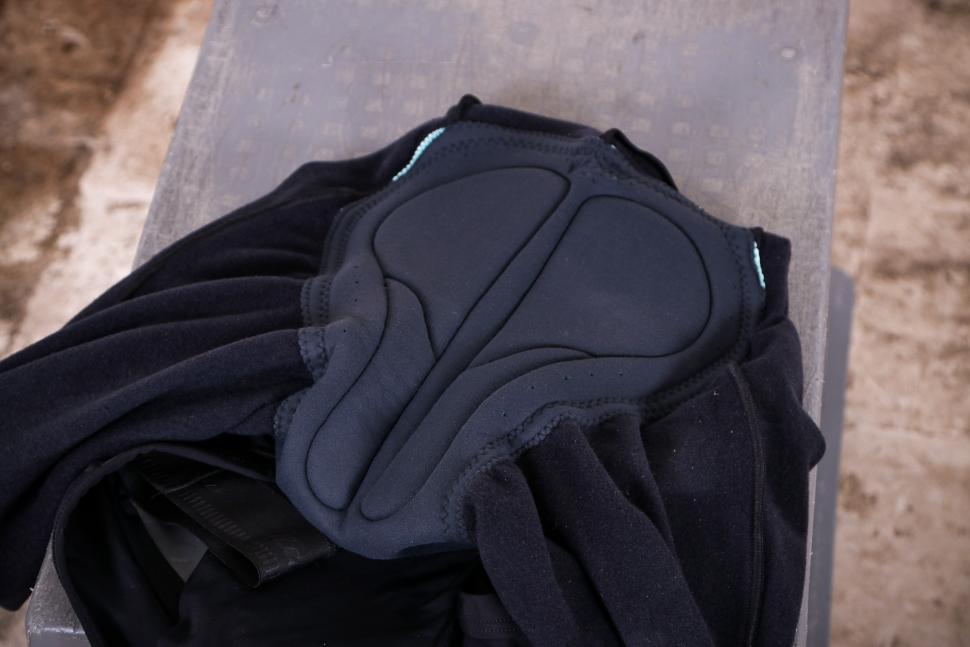
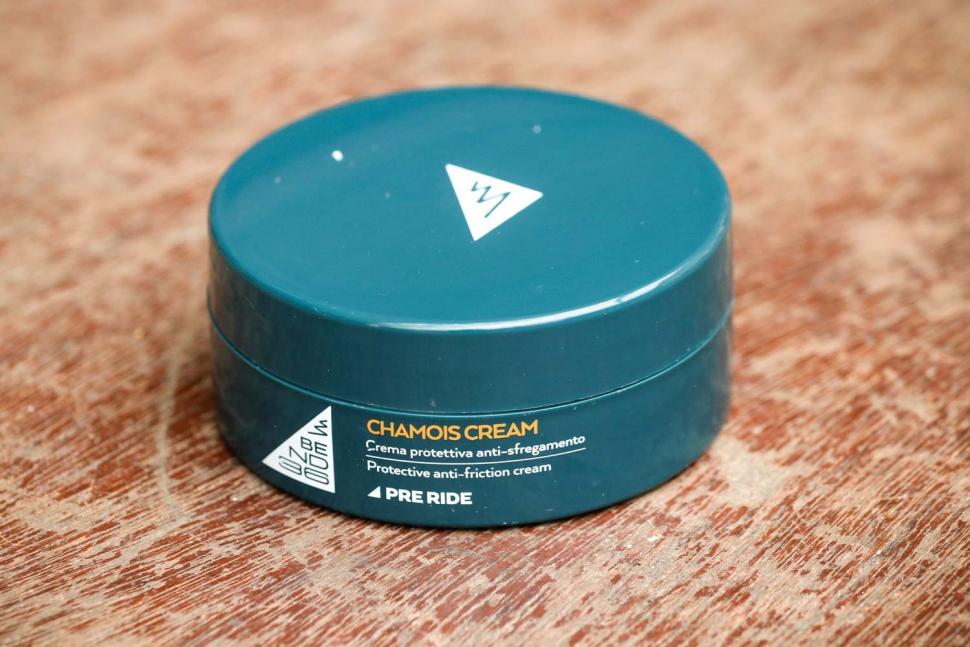
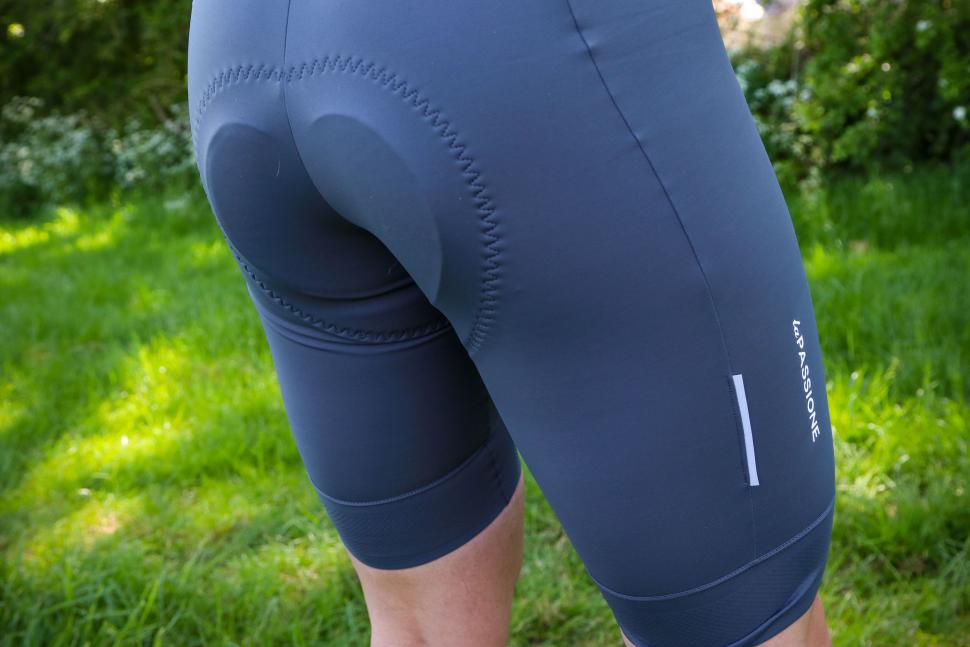
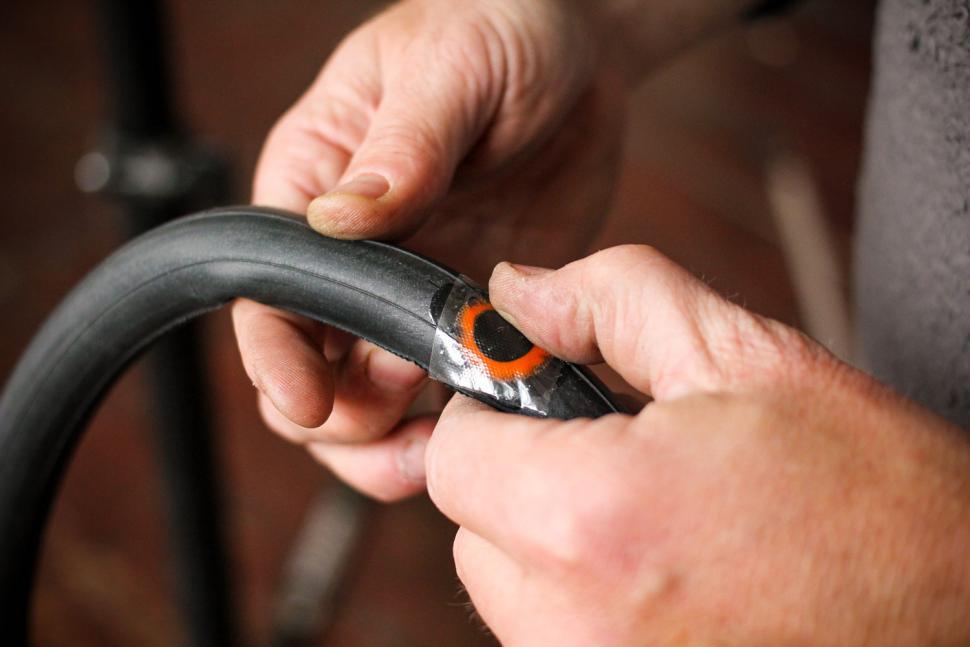
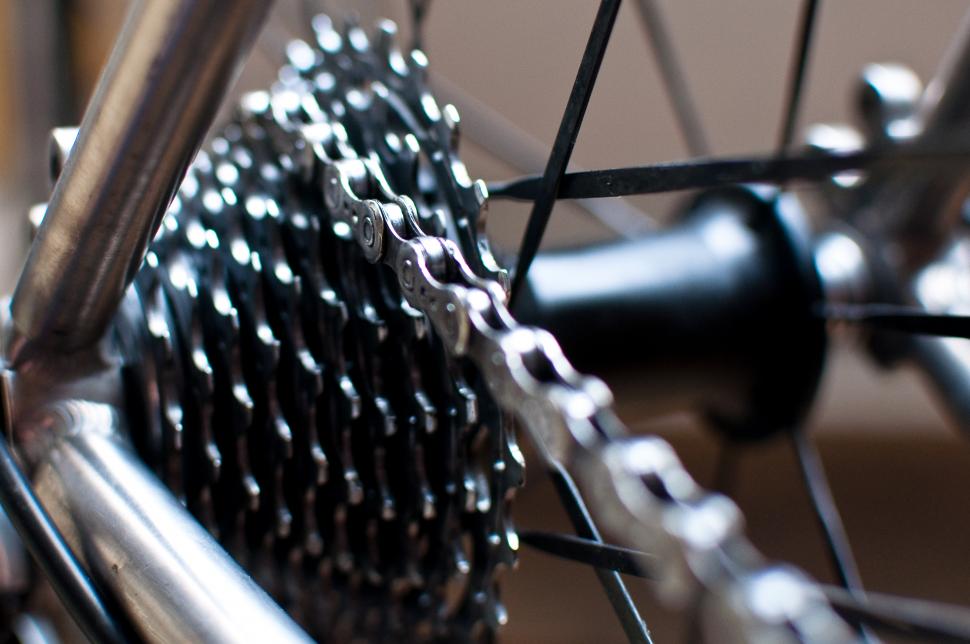



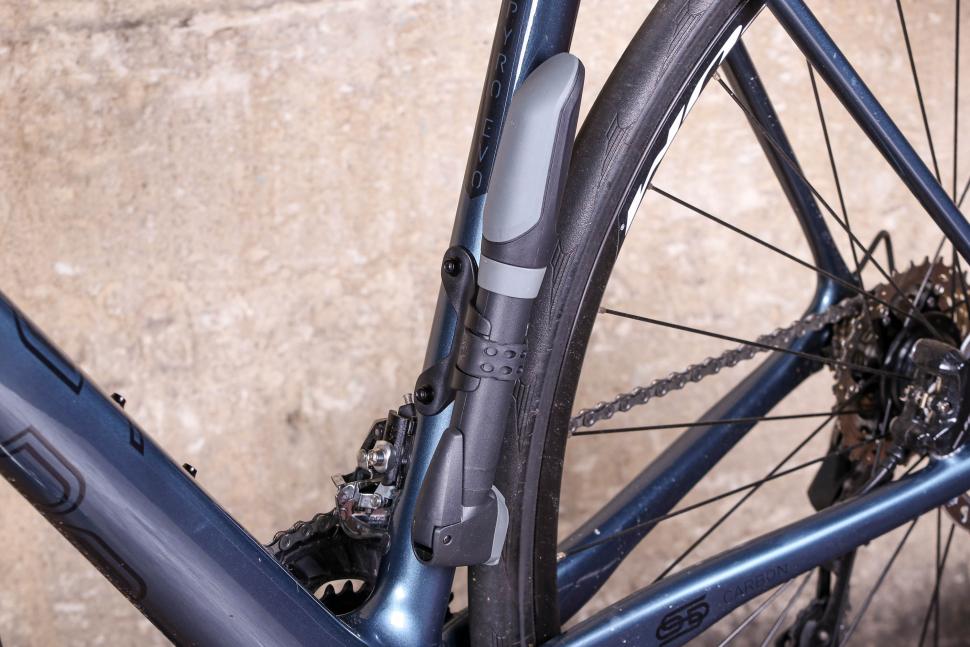


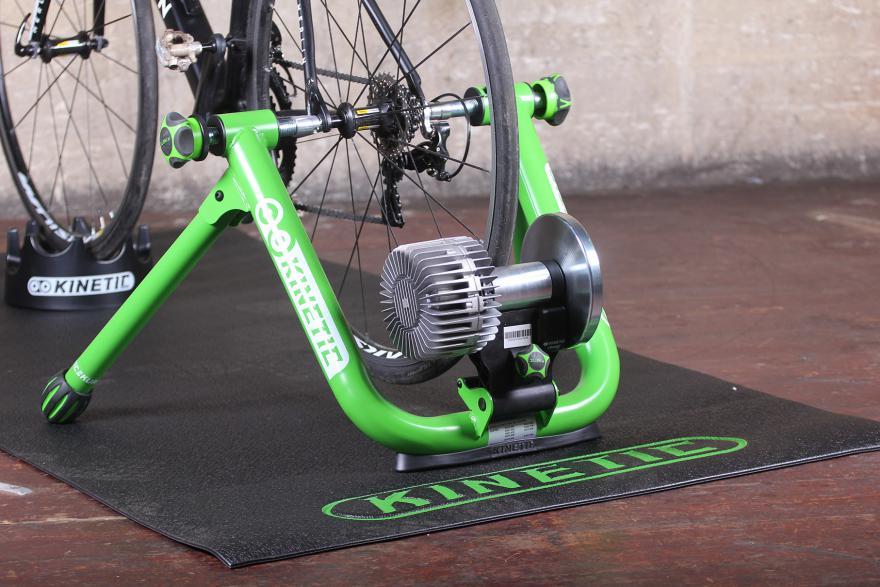
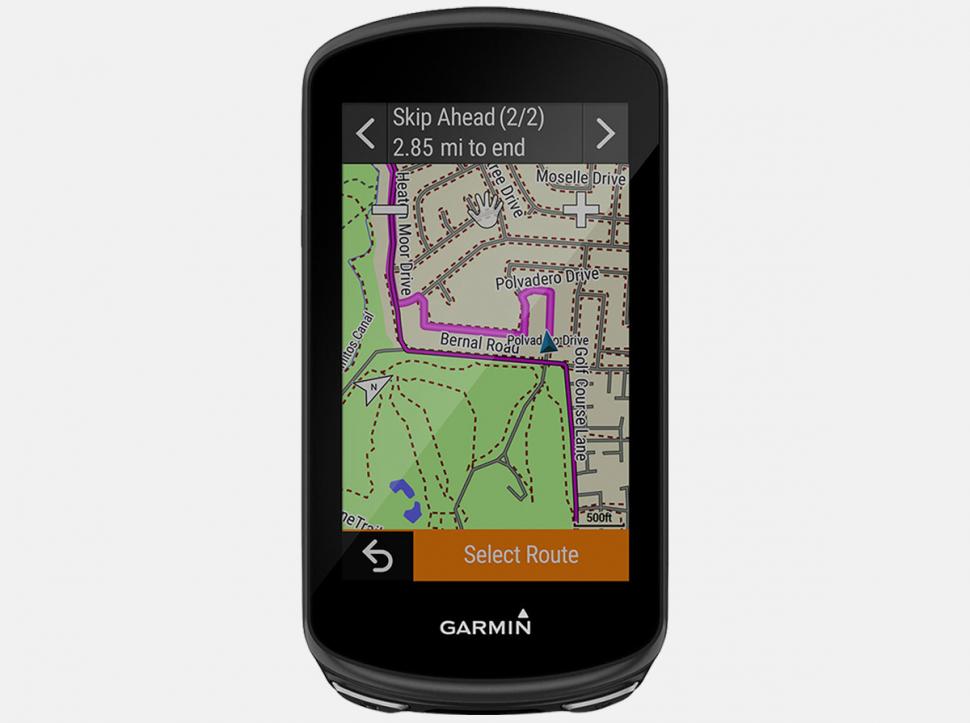
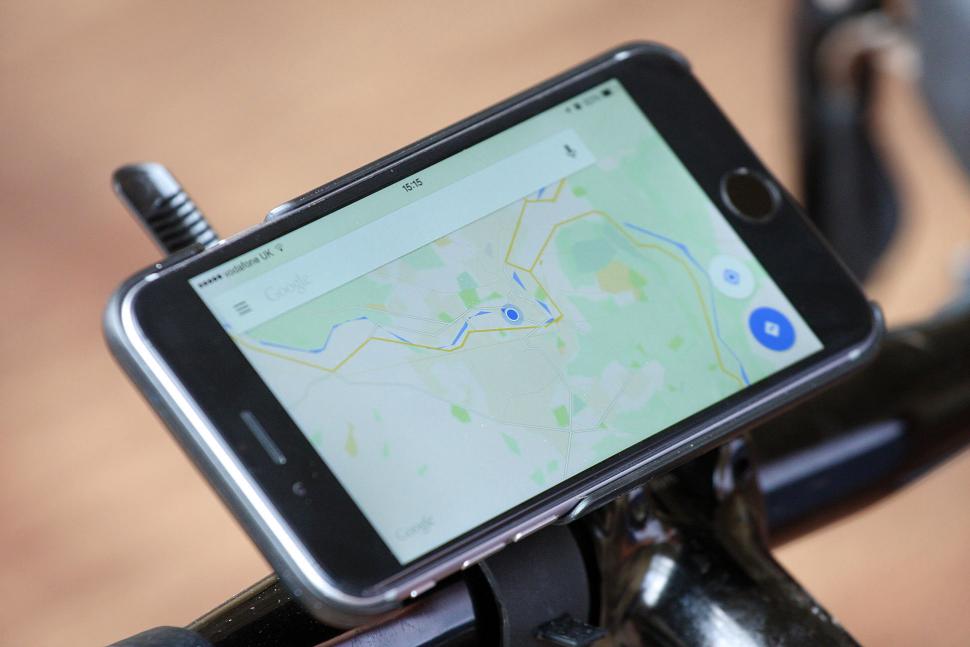
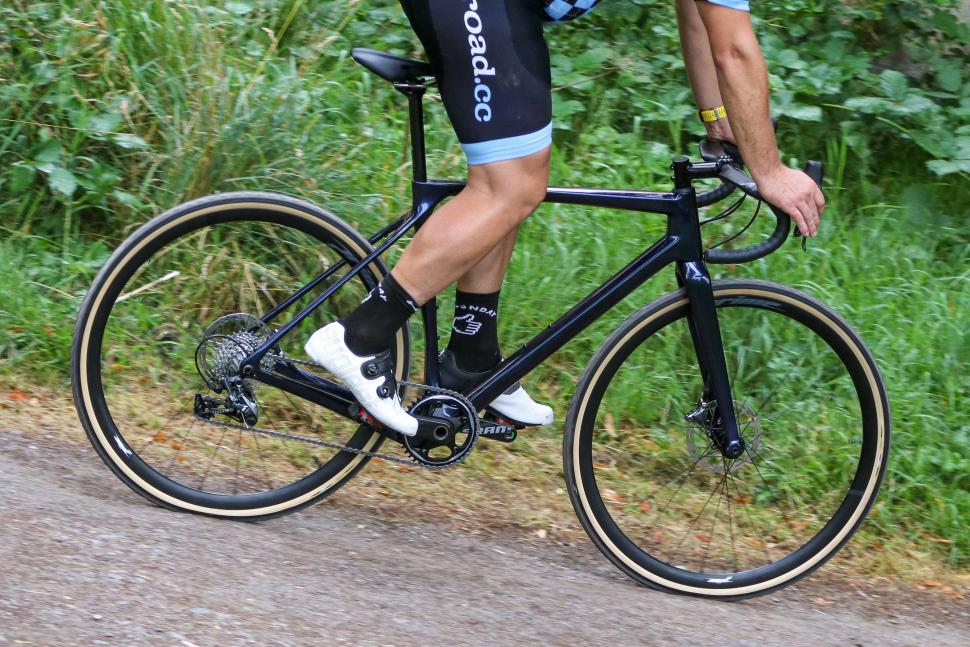
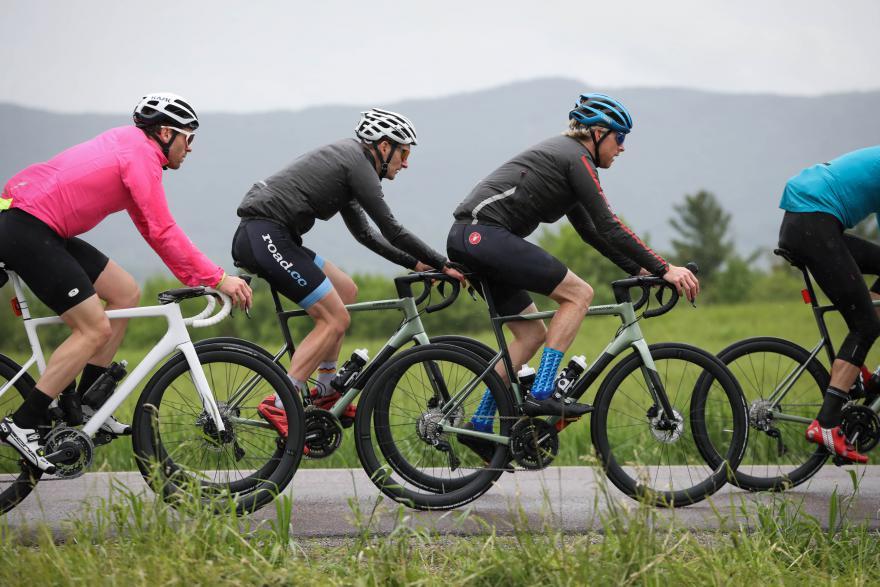
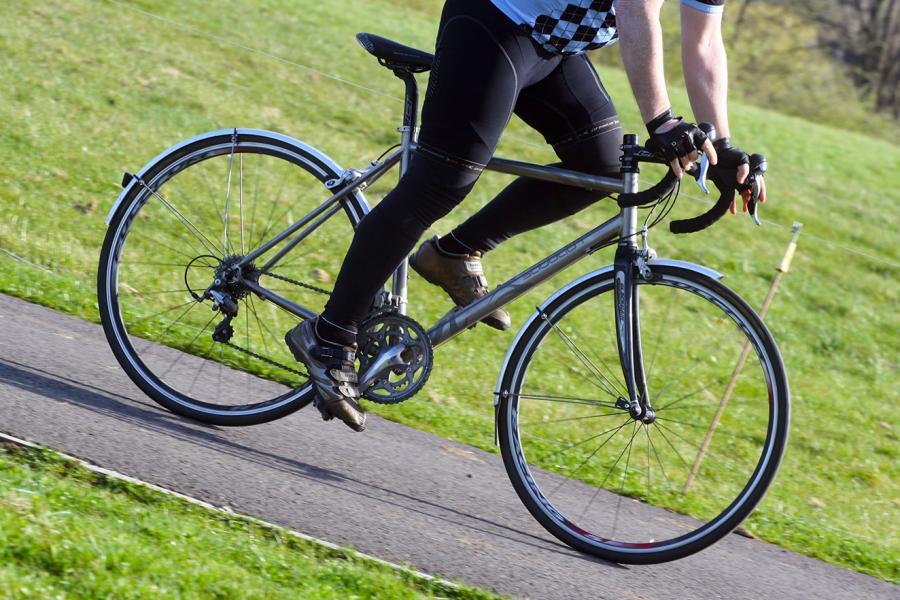
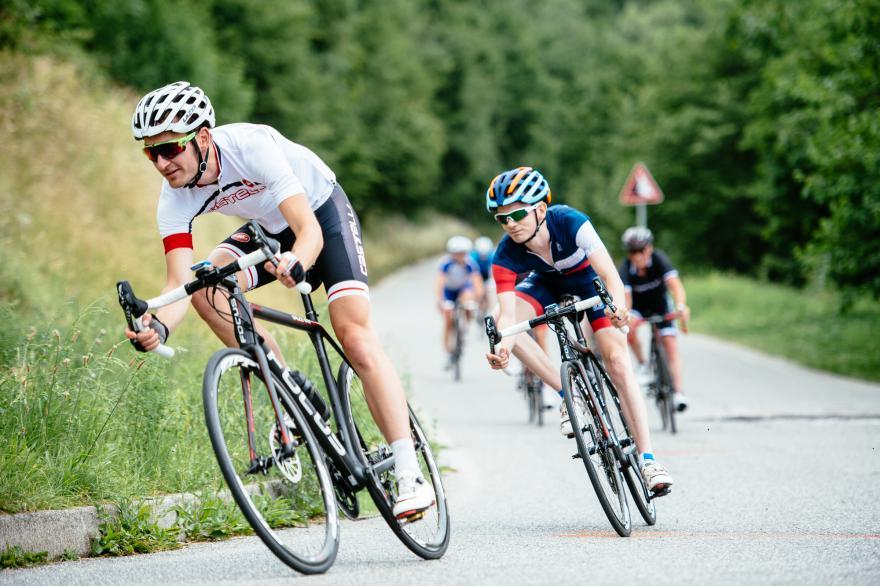
Interesting, I reckon one of those would certainly give the miscreants pause for thought, if they could hear themselves think.
New cycling show on Quest this evening. So that's a bonus.
I know, but you still have to be able to measure to within 1/16 of an inch (1.5mm) and given that it's an either way measurement you have to be...
You would notice the overall bike weight increase, but that's not what we're talking about; he specifically states that you will save effort...
Is that you, Nige?...
Lost control of his car doing 40 mph through a 60 mph corner? Sort of begs for some questions as to how Wan obtained a license to drive in the...
I do understand that policing resources are limited and need to be prioritised, but do we really have to wait until a KSI before they take action?...
Still no mention of a driver....
Electric car smashed up with 'big pole' in protest against Elon Musk (Bristol Post)...
Just harness it. In European countries selfish and arrogant people are demanding better cycling facilities (for their convenience) and probably...